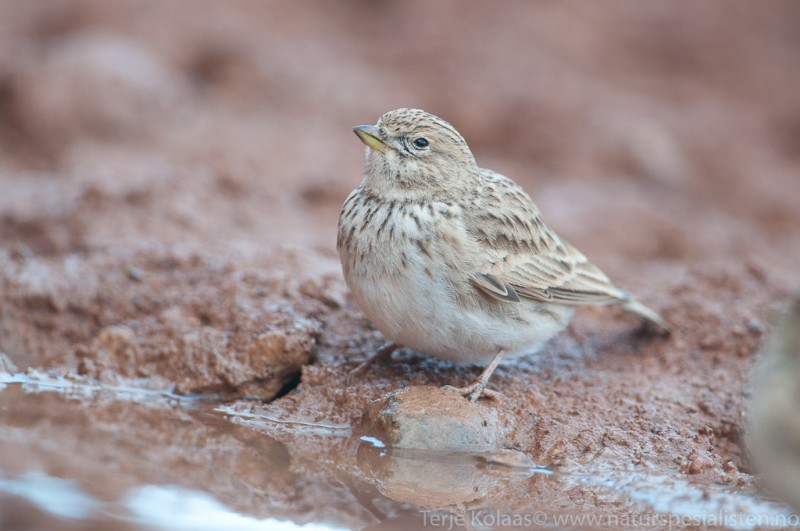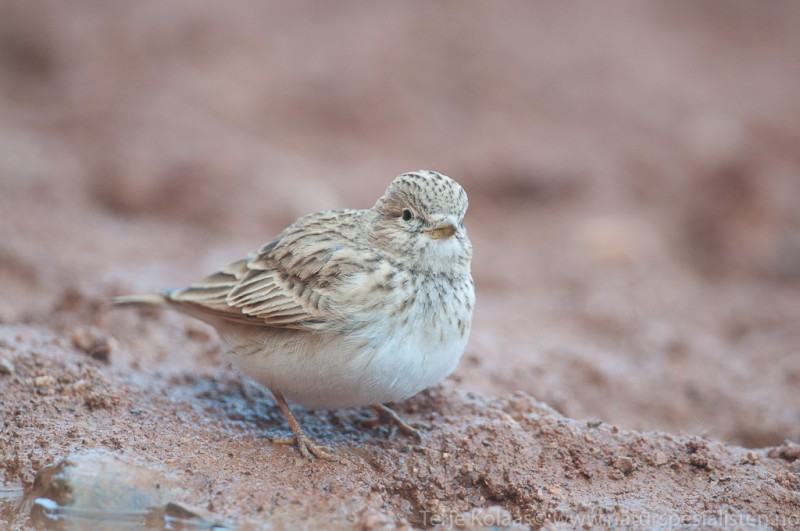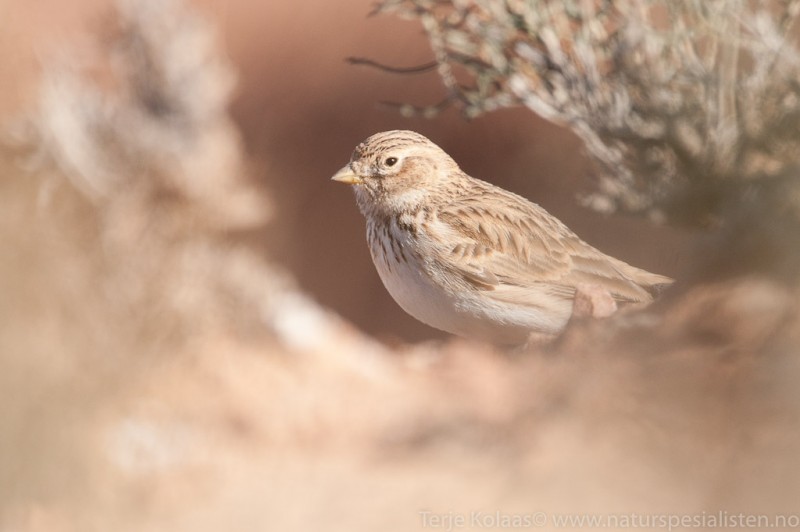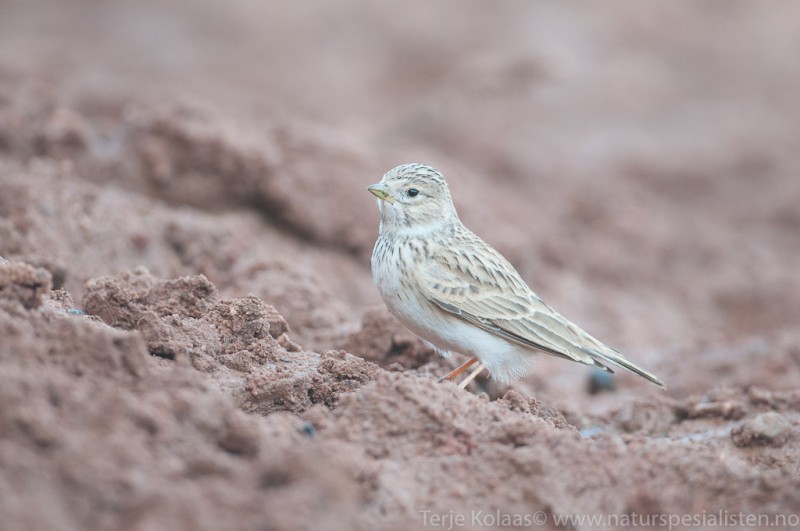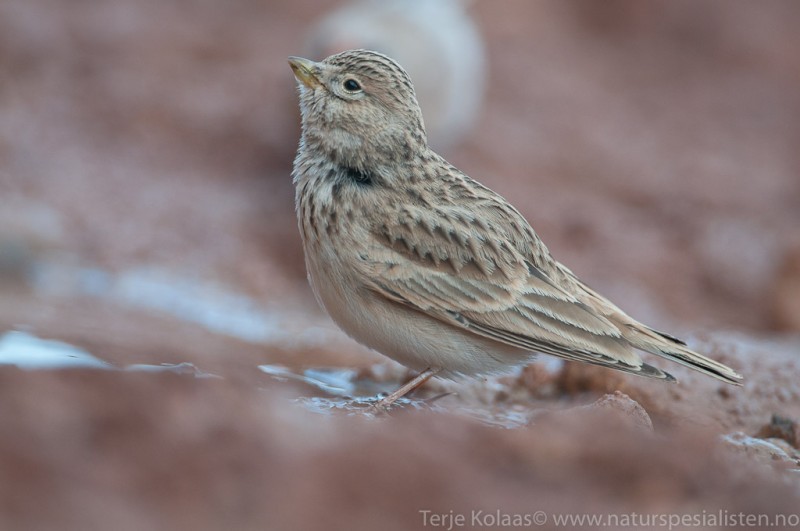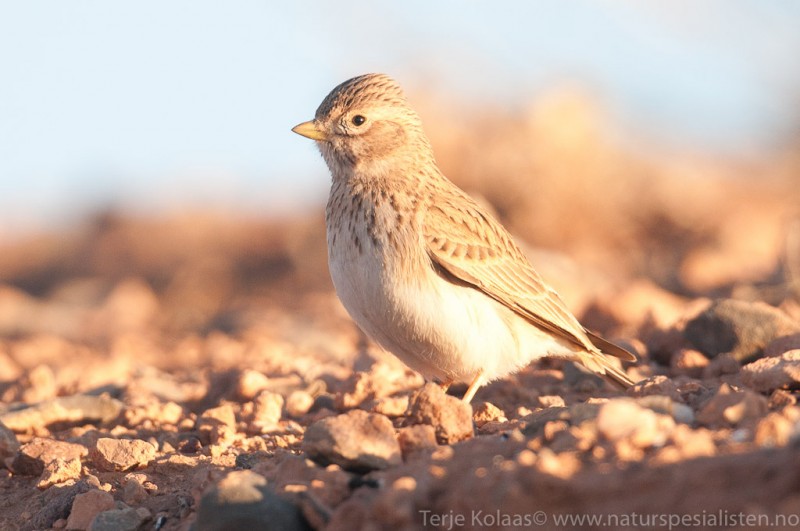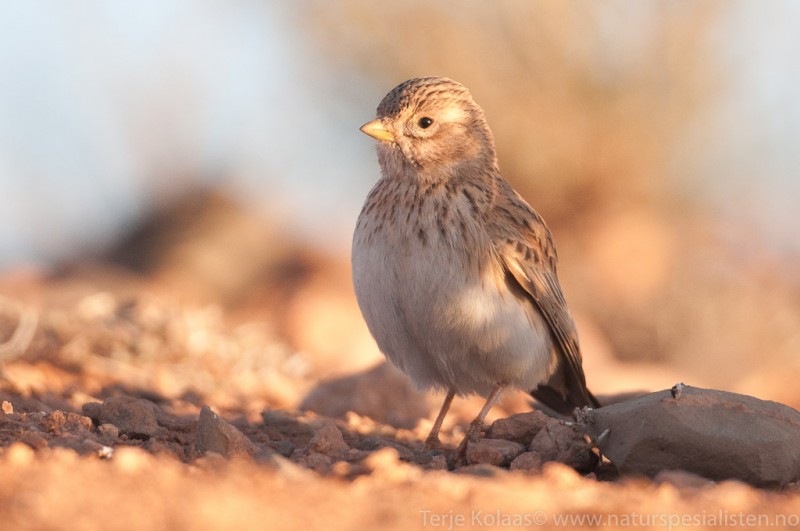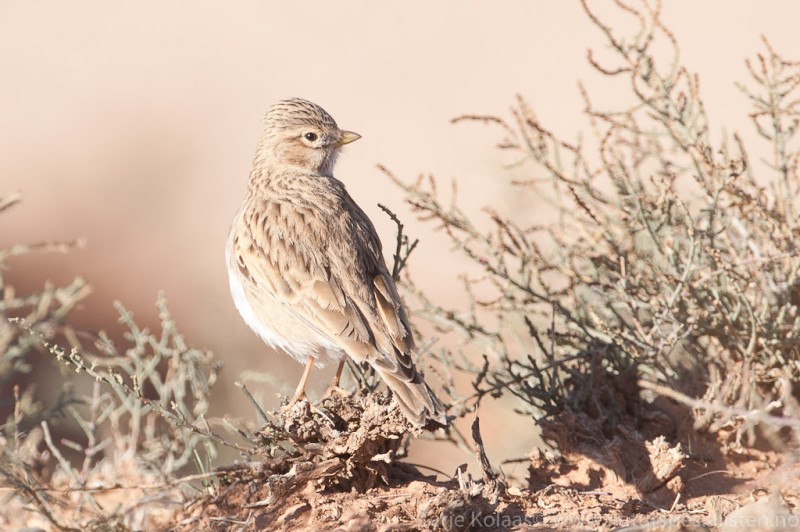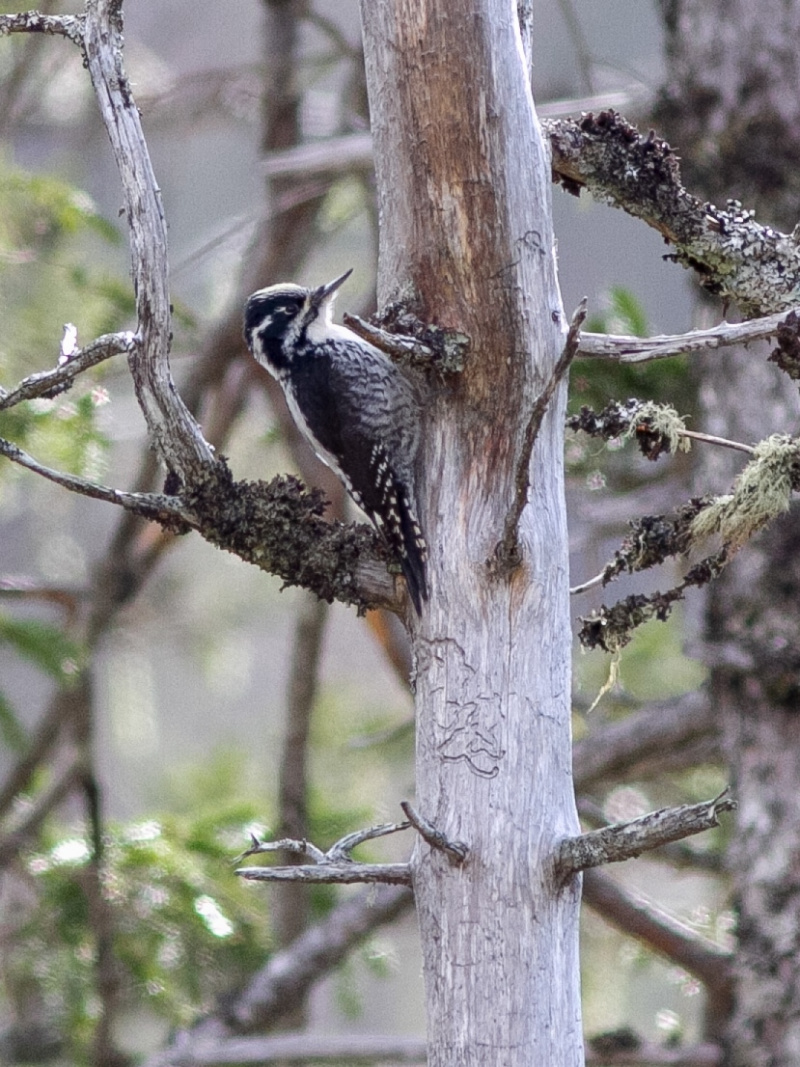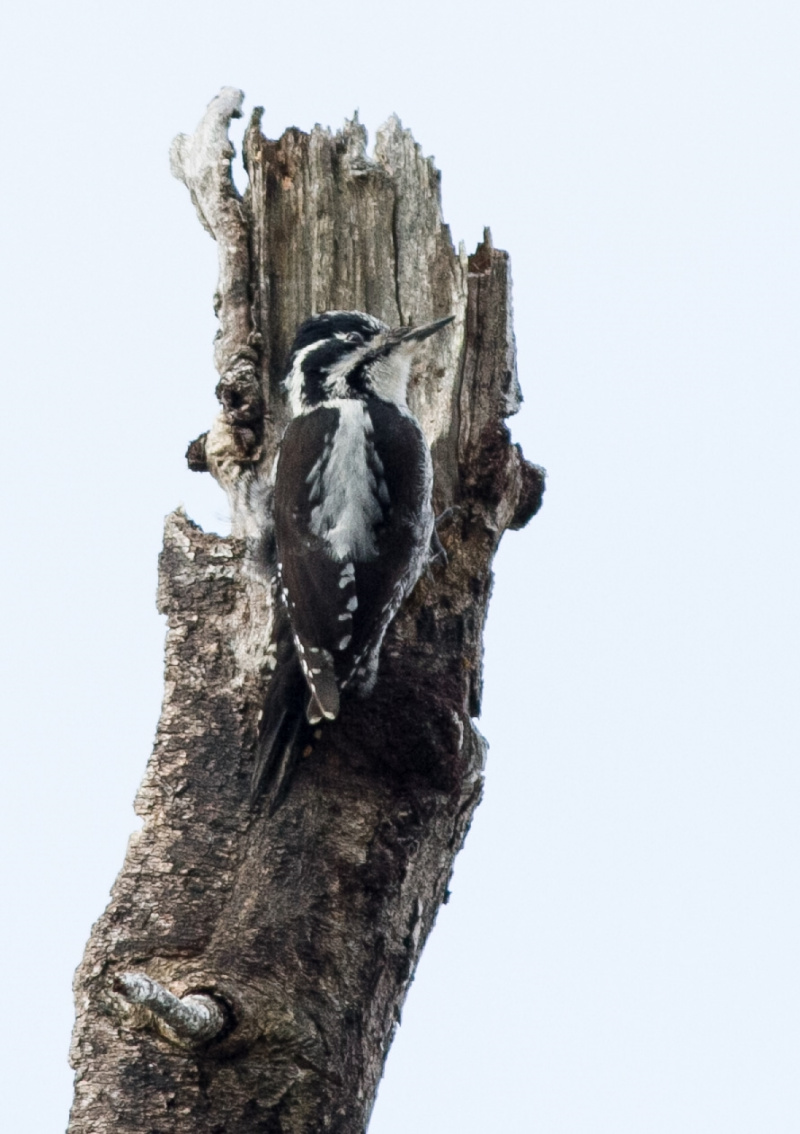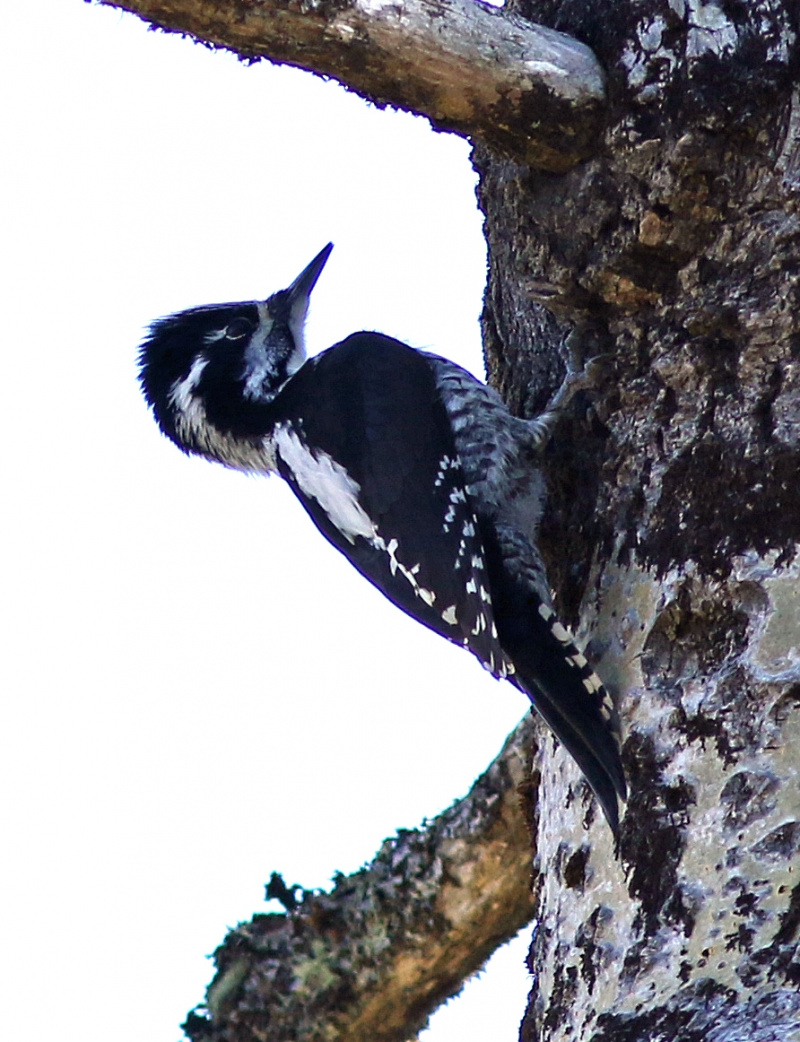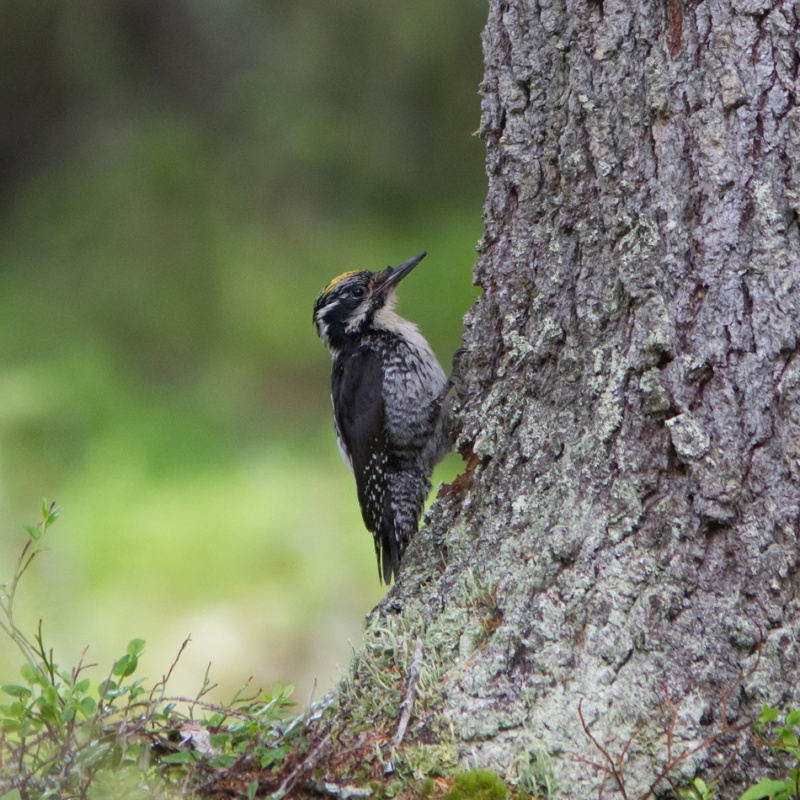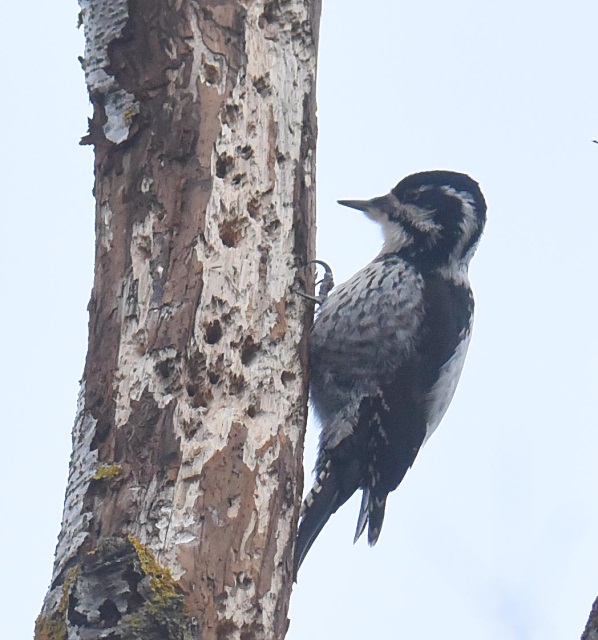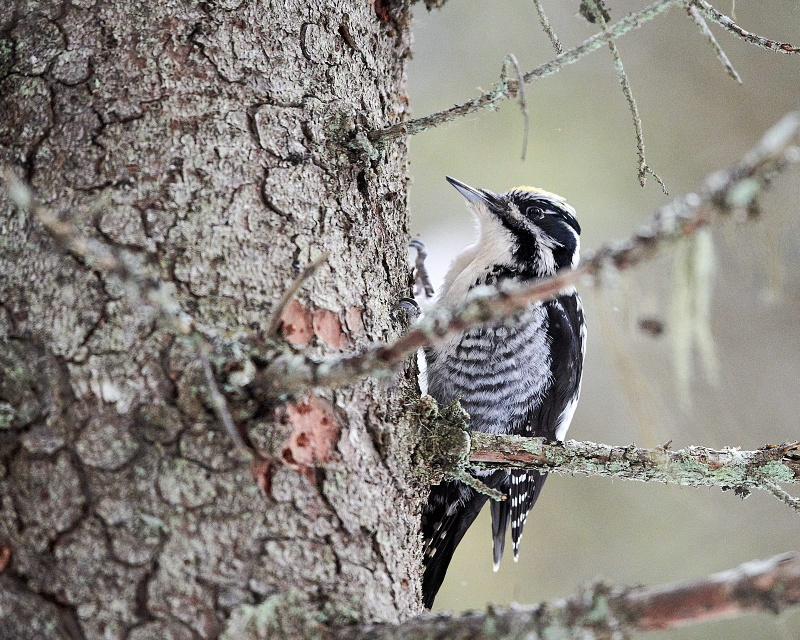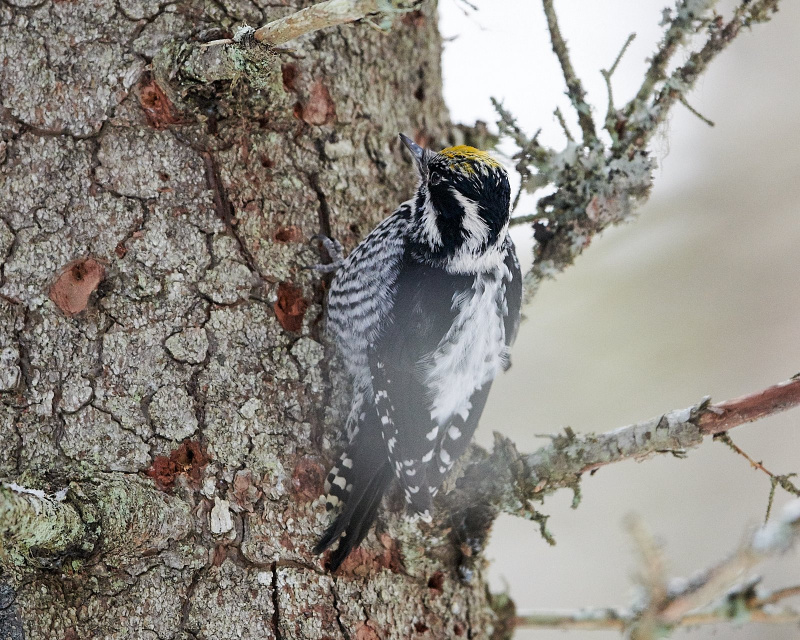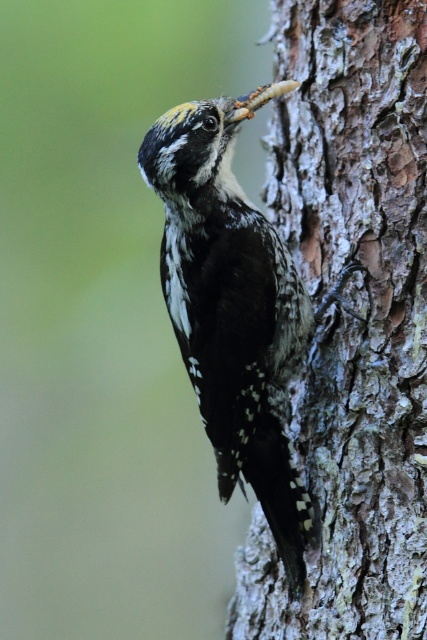Mediterranean Short-toed Lark (Alaudala rufescens)
Three-toed Woodpecker (Picoides tridactylus)
Small lark with short, blunt bill and markedly streaked breast. The long primary projection is not covered by the tertials, as in (Greater) Short-toed Lark. Upperparts browner, and the dark shoulder patch og GSL is missing. Supercilium reaches all the way to bill-base. Wing-markings diffuse. Flight and behaviour similar to GSL. Sometimes performs song flight in characteristic "slow motion".
Sound:Contact call most diagnostic. A drawn, rattling "prrrrrrrt". Longer than in GSL, and less defined. Last syllable (t) accented and with a lower pitch. Song more continuous than in GSL, with a jerky rhythm and lots of mimicry. Listen for the interweaved contact calls.
Contact call, song:
Distribution:
Xeno-canto: map
Ecology:Birdlife ecology
Links:
Observation.org Latest observations
Image search Flickr NB! May give other species
CCShows no red patches in any plumages. Only woodpecker in WP with barred flanks. White stripes extends from behind eye to back and from base of bill to scapulars, but head is generally much darker than in other pied woodpeckers. Crown in male yellow, in female speckled white.
Sound:Drumming powerful and slow, with each beat clearly distinguishable. Most similar to Black Woodpecker but not as long (1 - 1.4 seconds). Accelerated ending (just the last few beats). Contact call similar to Great Spotted, but deeper and softer. Not very vocal.
Drumming:
Distribution:
Wikipedia: map (se also Xeno-canto below)
Ecology:Birdlife ecology
Links:
Observation.org Latest observations
Image search Flickr NB! May give other species
CCCC-sounds:Antero Lindholm, www.xeno-canto.org/247630.

 English
English Albanian
Albanian
 Armenian
Armenian
 Bulgarian
Bulgarian
 Catalan
Catalan
 Croatian
Croatian
 Czech
Czech
 Danish
Danish
 Dutch
Dutch
 Finnish
Finnish
 French
French
 Georgian
Georgian
 German
German
 Greek
Greek
 Hungarian
Hungarian
 Italian
Italian
 Latvian
Latvian
 Lithuanian
Lithuanian
 Macedonian
Macedonian
 Norwegian
Norwegian
 Polish
Polish
 Portuguese
Portuguese
 Romanian
Romanian
 Russian
Russian
 Sami : Lule sami
Sami : Lule sami
 Sami : North sami
Sami : North sami
 Sami : South sami
Sami : South sami
 Scientific names
Scientific names
 Serbian
Serbian
 Spanish
Spanish
 Swedish
Swedish
 Ukrainian
Ukrainian


